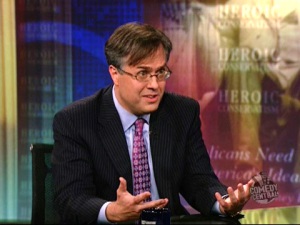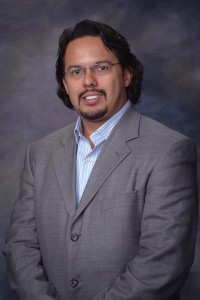50 leaders of the evangelical generation: #6 Charles W. Colson. Statesman
[I am working on a project that may become a book on the most influential evangelicals leaders of our generation, since 1976, and the impact they’ve had on the church and their times. I will introduce them briefly on this blog from time to time. Who should be on this list?]
#6. Charles Colson. Statesman b. 1931
It is no exaggeration to say that that the Christian conversion of Charles Colson in 1973 stands in stature and impact among the modern era’s most visible and consequential. The startling front-page news that Colson had found Christ raised eyebrows throughout the country and struck fear in a White House besieged by Watergate and not anxious to see one of its defendants find the confession booth. But the enduring impact of Colson is not only the public conversion of a political scoundrel, but his lifelong ministry to the imprisoned, the evidence of intellectual support for the leap of faith, his pioneering analysis of daily news in light of ancient Scripture, his surprising emphasis on church unity, and as a senior leader his behind-the-scenes influence in the halls of power.
One could easily make the case that Colson is the central evangelical figure in the last generation. He was not the most visible, popular, best-selling, controversial, quoted, or cited—but he is among the leaders in all of those categories. At the same time, much of his influence is behind the scenes and through his profound influence on influencers.
I saw much of this unfold as an associate, aide, and consultant to Colson over nearly two decades, from the early 80s into the new millenium, serving for part of that time as his chief of staff, and—as he would occasionally say with a chuckle—his hatchet man.
Chuck Colson’s life and work has had an enormous impact in at least these five areas:
Conversion
Colson was known as the White House “hatchet man,” a man feared by even the most powerful politicos during his four years of service to President Nixon. When news of Colson’s conversion to Christianity leaked to the press in 1973, the Boston Globe reported, “If Mr. Colson can repent of his sins, there just has to be hope for everybody.” Colson would agree. He admits he was guilty of political “dirty tricks” and willing to do almost anything for the cause of his president and his party.
“My conversion kept the political cartoonists of America clothed and fed for months. The cartoons were all somewhat the same: a picture of me in a monk’s habit, standing outside the White House fence, with a sign that read: Repent!
“But before my conversion I wasn’t nearly as bad as I was made out to be,” Colson told me, “And I’m not nearly as good as a Christian as I’m made out to be. But it makes for a great testimony!”
That testimony is usually confused in the re-telling, with the story including a Watergate conviction that resulted in a prison sentence for Colson, and while in prison sentence he turned to God. The facts are that Colson, in the midst of the Watergate hearings, dramatically came to faith in Christ in 1973, and as a result of his new faith and life, he decided, in 1974, to plead guilty to a charge that was related to Nixonian dirty tricks (but not directed related to the Watergate break-in or cover-up). Colson was sentenced to prison on the basis of the guilty plea and he entered prison as a Christian and began his conversion memoir, Born Again, during his seven months in prison. Born Again was one of the nation’s best-selling books of all genres in 1976 and was made into a feature-length film.
His heavily publicized commitment to Jesus Christ as a highly visible public figure has been instrumental in many conversions among, for the lack of a better word, the elite in this nation and around the world.
Prison Ministry
Because Chuck Colson began his Christian life in prison, the needs of prisoners and the failures of the criminal justice system were among the first problems that God brought to his attention, the commitment he made to help those prisoners is a promise he has never broken. The attention he brought to prison ministry has changed the church.
Upon his release Colson founded Prison Fellowship (in 1976), which has become the world’s largest outreach to prisoners, ex-prisoners, crime victims, and their families. Christians had been ministering to people in prison throughout the history of the church, but it had never had scale and visibility; neither was it well-funded. As a result of Chuck Colson’s intelligence, notoriety, communications skills, organizing ability, and fundraising prowess, Prison Fellowship has grown to unimaginable proportions (for a prison ministry), and prison outreach has become a prominent part of church programming. [Many of Prison Fellowship’s largest donors had only marginal interest in prison work. As one major contributor told me: “If Chuck asked me to support a basket-weaving ministry, I’d do it.” We called this part of the donor base “Colson groupies.”
Applying a Christian Worldview to Secular Culture
It wasn’t long after he began Prison Fellowship, that Colson sensed God’s calling to comment on the culture and the church’s interaction with the culture through the written and spoken word. It was clear immediately his knowledge and life experiences were unique among Christian leaders. Colson called on Christians to begin each day “with the Bible in one hand and the newspaper in the other.” After his two autobiographic books that described his conversion (Born Again) and the beginning of the prison ministry (Life Sentence), he moved markedly toward a critique of church and culture, beginning with Loving God in 1983, often using illustrations from the rough world of prison ministry to make his larger points.
In later years, perhaps sensing his own mortality, Colson began a center to train a new generation of leaders to renew the church and revitalize the culture. Colson describes this as a new effort “to be salt and light, rubbed into the culture in such a way that the people and institutions around us slowly begin to understand that they have embraced the Lie, and to replace it with the Truth of a biblical understanding of all of reality.”
Colson has written 20 books, which have collectively sold more than five million copies, and his 4-minute daily radio commentary, BreakPoint, has been a popular daily word for Christians.
Influence in the Political Arena
His 1987 his book Kingdoms in Conflict (updated in 2007 as God and Government) was a best-selling directive to the Christian community on the proper relationships of church and state, and it positioned Colson as a centrist evangelical voice for balanced Christian political activism. (Pat Robertson’s presidential run made the original release of Kingdoms) a big hit. That influence continued over the next 20 years, often behind the scenes.
In Faith in the Halls of Power, Michael Lindsay writes that Colson is the evangelical “movement leader who seemed to have the greatest influence” in Washington. More than a quarter of the senior political leaders he interviewed mentioned Colson by name when asked about the “most influential” evangelical leaders, more than the SBC’s Richard Land or Family Research Council’s Tony Perkins (no one mentioned James Dobson).[1]
Seeking Christian Unity
Colson’s commitment to the unity of the Church led to his co-authorship (with Father Richard John Neuhaus) of a cutting-edge document “Evangelicals and Catholics Together” that significantly helped to build an important bridge between Protestants and Catholics. Seeking commonality with the orthodox Christian faith and working to bring the church together is perhaps Colson’s most courageous and controversial act, with a number of conservative evangelicals at least privately critical of his actions, and many publicly dismissive of the ECT initiative. Colson’s book The Faith was a remarkable effort to identify the common tenets of the Christian faith.
In recognition of his work, Colson received the prestigious Templeton Prize for Progress in Religion in 1993, donating the $1 million prize to Prison Fellowship. Colson’s other awards have included the Humanitarian Award, Dominos Pizza Corporation (1991); The Others Award, The Salvation Army (1990); several honorary doctorates from various colleges and universities (1982-2000); and the Outstanding Young Man of Boston, Chamber of Commerce (1960).
[1] Lindsay, D. Michael. Faith in the Halls of Power: How Evangelicals Joined the American Elite. Oxford University Press. 2007.






